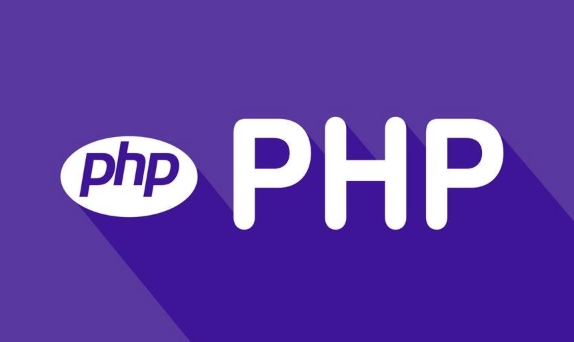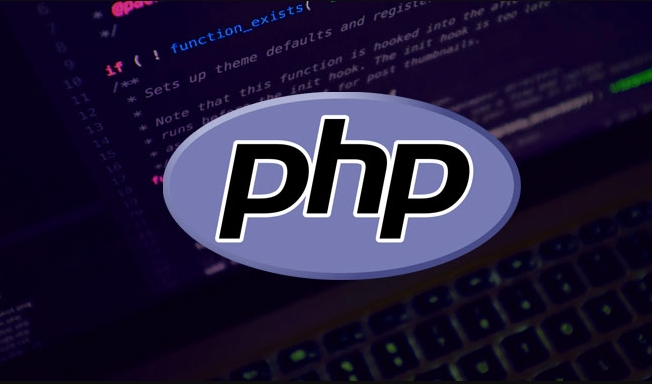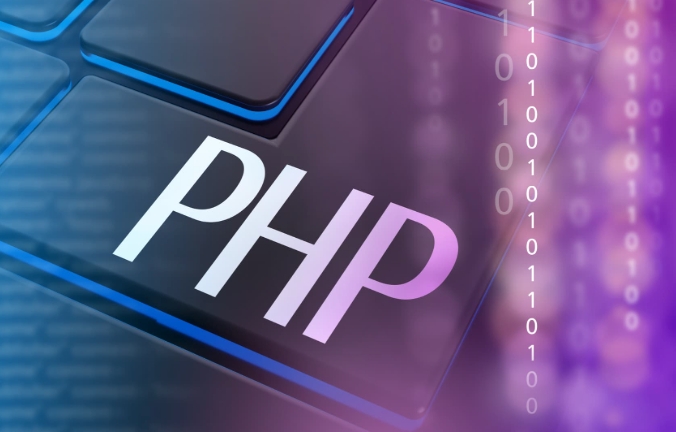 Backend Development
Backend Development
 PHP Tutorial
PHP Tutorial
 What is the maximum number of arguments a PHP function can accept?
What is the maximum number of arguments a PHP function can accept?
What is the maximum number of arguments a PHP function can accept?
Jul 04, 2025 am 02:01 AMPHP does not hardly limit the number of function parameters, but there are technical and performance considerations in actual use. 1. The language itself does not limit the number of parameters. In theory, functions with hundreds of parameters can be defined, but there are soft restrictions on compilation and variable management within the Zend engine, which can usually be encountered only when dynamically generating functions. 2. Too many parameters will affect performance, especially in old PHP, each parameter will increase memory and processing overhead. It is recommended to use the associative array pass option instead to improve efficiency. 3. From the perspective of code readability and best practices, functions with more than 5-7 parameters should consider reconstruction, such as grouping parameters into arrays or objects, using configuration objects, or splitting functions responsibilities. 4. In extreme cases, stack overflow, memory errors, or fatal errors may occur in old PHP versions, but these are edge cases. In summary, although PHP is flexible, the number of parameters should still be controlled reasonably and structured data types should be used.

PHP doesn't enforce a hard limit on the number of arguments a function can accept. However, there are practical and technical considerations that come into play when dealing with functions that have a large number of parameters.

1. Language Limitations (No Explicit Cap)
Unlike some other languages, PHP does not define a maximum number of arguments you can pass to a function. You can technically define a function with hundreds of parameters if needed.

function manyArgs($a1, $a2, $a3 /* ..., $a100 */) {
// do something
}Behind the scenes, though, the engine (Zend Engine) has internal limits based on how it compiles and manages variables. These are not usually encountered in normal development but may show up if you're generating functions dynamically with tools or code generators.
2. Performance Considerations
Passing a large number of arguments can affect performance, especially in older versions of PHP. Each parameter adds overhead in terms of memory and processing during function calls.

- Functions with dozens of arguments will run slower than those with just a few.
- This is more noticeable in loops or recursive functions.
A better approach for handling many inputs is to use an associated array:
function processOptions(array $options) {
$defaults = ['name' => 'default', 'size' => 100];
$options = array_merge($defaults, $options);
// use $options['name'], $options['size'], etc.
}This improves readability, maintainability, and avoids hitting any soft limits or performance cliffs.
3. Best Practices and Readability
Even if PHP allows many parameters, writing a function with too many arguments is generally discouraged for code clarity and maintenance reasons.
- A function with more than 5–7 arguments become hard to read and track.
- It's often a sign that the function is doing too much or needs refactoring.
Here's a quick list of what to do instead:
- Group related parameters into arrays or objects.
- Use configuration objects if working in an object-oriented context.
- Break the function into smaller ones with focused responsibility.
4. Real-World Limits (Edge Cases)
While rare, developers may hit unexpected issues such as:
- Stack overflows in extreme cases (eg, thousands of arguments).
- Memory allocation errors when calling functions with generated parameter lists.
- Fatal errors from outdated or non-standard PHP builds (especially pre-PHP 7).
These are edge cases and unlikely unless you're auto-generating functions programmatically or working with legacy systems.
So while PHP gives you flexibility in this area, it's best to keep things manageable. Stick to a reasonable number of arguments, and use structured data types like arrays or objects when you need more flexibility.
The above is the detailed content of What is the maximum number of arguments a PHP function can accept?. For more information, please follow other related articles on the PHP Chinese website!

Hot AI Tools

Undress AI Tool
Undress images for free

Undresser.AI Undress
AI-powered app for creating realistic nude photos

AI Clothes Remover
Online AI tool for removing clothes from photos.

Clothoff.io
AI clothes remover

Video Face Swap
Swap faces in any video effortlessly with our completely free AI face swap tool!

Hot Article

Hot Tools

Notepad++7.3.1
Easy-to-use and free code editor

SublimeText3 Chinese version
Chinese version, very easy to use

Zend Studio 13.0.1
Powerful PHP integrated development environment

Dreamweaver CS6
Visual web development tools

SublimeText3 Mac version
God-level code editing software (SublimeText3)
 PHP Variable Scope Explained
Jul 17, 2025 am 04:16 AM
PHP Variable Scope Explained
Jul 17, 2025 am 04:16 AM
Common problems and solutions for PHP variable scope include: 1. The global variable cannot be accessed within the function, and it needs to be passed in using the global keyword or parameter; 2. The static variable is declared with static, and it is only initialized once and the value is maintained between multiple calls; 3. Hyperglobal variables such as $_GET and $_POST can be used directly in any scope, but you need to pay attention to safe filtering; 4. Anonymous functions need to introduce parent scope variables through the use keyword, and when modifying external variables, you need to pass a reference. Mastering these rules can help avoid errors and improve code stability.
 How to handle File Uploads securely in PHP?
Jul 08, 2025 am 02:37 AM
How to handle File Uploads securely in PHP?
Jul 08, 2025 am 02:37 AM
To safely handle PHP file uploads, you need to verify the source and type, control the file name and path, set server restrictions, and process media files twice. 1. Verify the upload source to prevent CSRF through token and detect the real MIME type through finfo_file using whitelist control; 2. Rename the file to a random string and determine the extension to store it in a non-Web directory according to the detection type; 3. PHP configuration limits the upload size and temporary directory Nginx/Apache prohibits access to the upload directory; 4. The GD library resaves the pictures to clear potential malicious data.
 Commenting Out Code in PHP
Jul 18, 2025 am 04:57 AM
Commenting Out Code in PHP
Jul 18, 2025 am 04:57 AM
There are three common methods for PHP comment code: 1. Use // or # to block one line of code, and it is recommended to use //; 2. Use /.../ to wrap code blocks with multiple lines, which cannot be nested but can be crossed; 3. Combination skills comments such as using /if(){}/ to control logic blocks, or to improve efficiency with editor shortcut keys, you should pay attention to closing symbols and avoid nesting when using them.
 How Do Generators Work in PHP?
Jul 11, 2025 am 03:12 AM
How Do Generators Work in PHP?
Jul 11, 2025 am 03:12 AM
AgeneratorinPHPisamemory-efficientwaytoiterateoverlargedatasetsbyyieldingvaluesoneatatimeinsteadofreturningthemallatonce.1.Generatorsusetheyieldkeywordtoproducevaluesondemand,reducingmemoryusage.2.Theyareusefulforhandlingbigloops,readinglargefiles,or
 Tips for Writing PHP Comments
Jul 18, 2025 am 04:51 AM
Tips for Writing PHP Comments
Jul 18, 2025 am 04:51 AM
The key to writing PHP comments is to clarify the purpose and specifications. Comments should explain "why" rather than "what was done", avoiding redundancy or too simplicity. 1. Use a unified format, such as docblock (/*/) for class and method descriptions to improve readability and tool compatibility; 2. Emphasize the reasons behind the logic, such as why JS jumps need to be output manually; 3. Add an overview description before complex code, describe the process in steps, and help understand the overall idea; 4. Use TODO and FIXME rationally to mark to-do items and problems to facilitate subsequent tracking and collaboration. Good annotations can reduce communication costs and improve code maintenance efficiency.
 How to access a character in a string by index in PHP
Jul 12, 2025 am 03:15 AM
How to access a character in a string by index in PHP
Jul 12, 2025 am 03:15 AM
In PHP, you can use square brackets or curly braces to obtain string specific index characters, but square brackets are recommended; the index starts from 0, and the access outside the range returns a null value and cannot be assigned a value; mb_substr is required to handle multi-byte characters. For example: $str="hello";echo$str[0]; output h; and Chinese characters such as mb_substr($str,1,1) need to obtain the correct result; in actual applications, the length of the string should be checked before looping, dynamic strings need to be verified for validity, and multilingual projects recommend using multi-byte security functions uniformly.
 Quick PHP Installation Tutorial
Jul 18, 2025 am 04:52 AM
Quick PHP Installation Tutorial
Jul 18, 2025 am 04:52 AM
ToinstallPHPquickly,useXAMPPonWindowsorHomebrewonmacOS.1.OnWindows,downloadandinstallXAMPP,selectcomponents,startApache,andplacefilesinhtdocs.2.Alternatively,manuallyinstallPHPfromphp.netandsetupaserverlikeApache.3.OnmacOS,installHomebrew,thenrun'bre
 Learning PHP: A Beginner's Guide
Jul 18, 2025 am 04:54 AM
Learning PHP: A Beginner's Guide
Jul 18, 2025 am 04:54 AM
TolearnPHPeffectively,startbysettingupalocalserverenvironmentusingtoolslikeXAMPPandacodeeditorlikeVSCode.1)InstallXAMPPforApache,MySQL,andPHP.2)Useacodeeditorforsyntaxsupport.3)TestyoursetupwithasimplePHPfile.Next,learnPHPbasicsincludingvariables,ech





